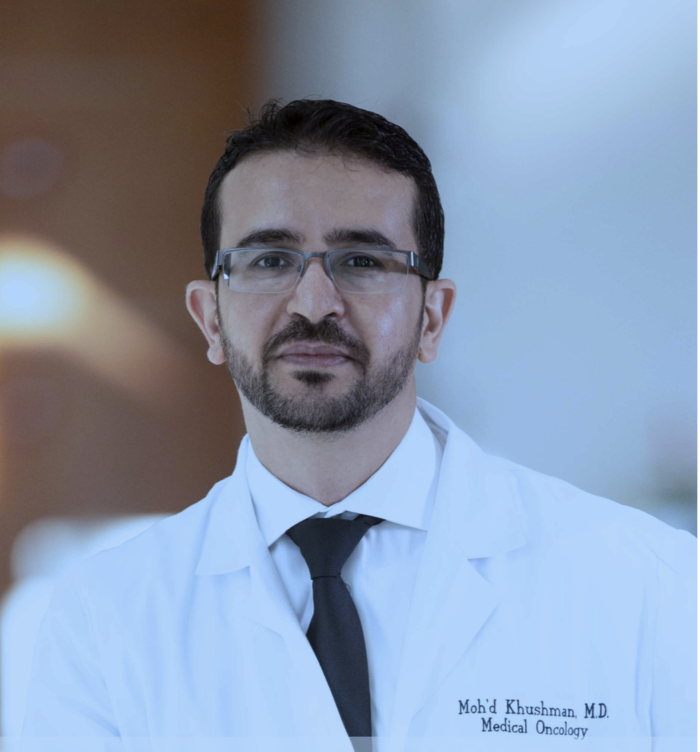Cancer Innovations Worth Celebrating
February 4, 2021
By Moh’d Khushman, MD
Last year was a downer in so many ways. But, for the oncology community, 2020 also brought plenty of reasons to celebrate.

- Record-setting Survival Rates. For the first time, the number of people with pancreatic cancer who survived five years after diagnosis reached 10%. This achievement is due, in large part, to remarkable advancements in diagnostics and treatment.
- Immunotherapy Approved as First Line Treatment. The year 2020 also brought colorectal cancer patients, their families and providers alike a reason to cheer. The Food and Drug Administration approved the first immunotherapy drug that can be used as a first line treatment for some colorectal cancers. And the innovations in oncology didn’t stop there.
- Expanded Use of Molecular Profiling. The approach provides oncologists more precise information about a specific patient’s tumor tissue or blood than has ever been accessible. This patient-specific data allows for personalized treatment planning and is starting to be recognized for its potential to better inform clinical decision-making.
- Clinical Application of Circulating Tumor DNA. Circulating tumor DNA is found in the blood and refers to DNA that comes from tumor. As a tumor grows, cells die and their contents, including DNA, are released into the blood. Measuring circulating tumor DNA in patients with cancer has several clinical applications such as making a decision about a treatment with chemotherapy or radiation and its duration, in addition to surgery. The amount of circulating tumor DNA is also helpful in assessing tumor response to a given therapy.
World Cancer Day, February 4, is a fitting occasion to pause and be thankful for these advancements.
It’s also an appropriate day to recommit ourselves, as providers, to advocate for the access that our patients need. Let us take the extra time, fill out the extra form, make the extra call to ensure our patients can benefit from the full array of diagnostics and treatments available. In many instances, our commitment is what will help us move the needle even further on survival rates in the coming years.

Moh’d Khushman, MD, is an oncologist in Alabama and a member of the Alliance for Patient Access.
Tags: OncologyCategorized in: Blog

